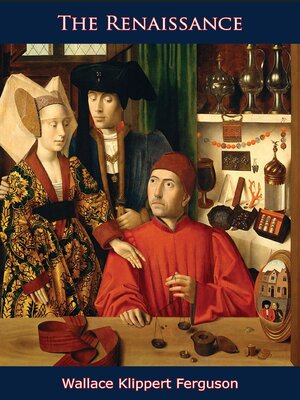
Sign up to save your library
With an OverDrive account, you can save your favorite libraries for at-a-glance information about availability. Find out more about OverDrive accounts.
Find this title in Libby, the library reading app by OverDrive.



Search for a digital library with this title
Title found at these libraries:
| Library Name | Distance |
|---|---|
| Loading... |
A short introductory overview of the European Renaissance, divided by topic and covering the sociological, political, scientific and artistic aspects of the period. Wallace Klippert Ferguson was a world renowned authority on the period, studying at Cornell University and was awarded a Guggenheim Fellowship for Humanities. "If we consider the civilization of Western Europe as a whole, it was this transitional process, involving as it did the co-existence of medieval and modern elements in a constant state of flux, which gave to the period we know as the Renaissance is special character, and which justifies us in regarding it as a distinct historical period." "His important scholarly contributions cover the period of the Renaissance and Reformation in most of its aspects: political, economic, religious and intellectual. He published several works of synthesis which are both reliable and influential: A Survey of European Civilization, volume I (1936, revised 1947, 1958, and 1969); The Renaissance (1940, revised 1969); Europe in Transition, 1300-1520 (1962). His masterly history of the interpretation of the Renaissance (The Renaissance in Historical Thought: Five Centuries of Interpretation, 1948) was a major and definitive contribution to the continuing debate about the so-called problem of the Renaissance; it was widely acclaimed and also translated into French and Italian. A number of substantial papers, many of them dealing with broad problems of Renaissance history and historiography, appeared in various periodicals between 1927 and 1963; eleven of them were collected in his Renaissance Studies (1963, repr. 1970). To this collection we must add an article on Jansenism (1927), a note on an unpublished letter of John Colet (1934), and a lecture on Erasmus and Christian Humanism (1963), as well as many book reviews, introductions, and short notes."-Paul Oskar Kristeller Columbia University







